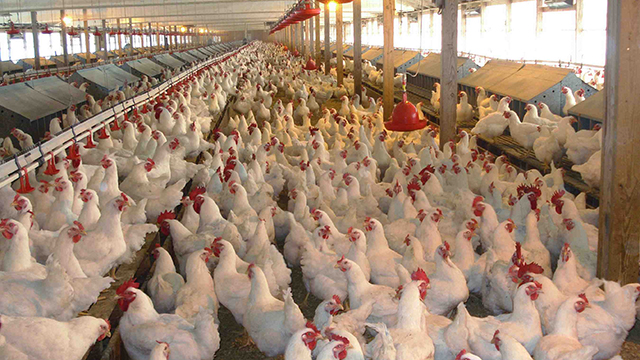Six million fewer chickens slaughtered weekly in EU after Mercosur pact

Euractiv | 22 October 2019
Six million fewer chickens slaughtered weekly in EU after Mercosur pact
By Sarantis Michalopoulos
The EU poultry meat sector was sacrificed in order to convince Brazil to seal the Mercosur trade agreement. But the impact on the sector in Europe is expected to be very heavy, the association of poultry processors told EURACTIV.com.
“Poultry meat export is very important for Brazil and, therefore, the last-minute offer of an extra 90,000 tonnes (in total 180,000 tonnes) might have persuaded, especially the Brazilians, to get the deal done,” Birthe Steenberg, secretary-general of the association of EU poultry processors and trade.
The EU and Mercosur (Argentina, Brazil Paraguay and Uruguay) reached a political agreement for a trade agreement on 28 June.
The deal came after two decades of often tough negotiations, which had repeatedly stalled because of European farmers’ sensitivities.
The deal, which now has to go through the EU Council, the European Parliament and national parliaments, has triggered a number of reactions, especially from the EU agriculture sector.
In an interview with EURACTIV last July, Pekka Pesonen, the EU farmers’ union chief, described the deal as “devastating”.
“First of all, this is a political agreement. It still needs some fine-tuning but it’s fair to say that its impact will be devastating on the European farming family model […] the net balance of this agreement is hugely negative. It’s several billion euros in the negative, in the red,” Pesonen said.
Steenberg said the deal would result in 300 million chickens less slaughtered every year in the EU, which practically means six million chickens less a week.
In addition to that, Steenberg said that an additional 50,000 chickens quota is expected to be granted to Ukraine due to a loophole in the Free Trade Agreement with Kyiv.
The poultry association said in a statement “the EU market can easily end up flooded with Ukrainian poultry meat”, while Steenberg warned that “we are already importing far more poultry meat than the other meat species”.
“The main exporters of poultry meat to the EU are Brazil, Thailand and Ukraine. An extra factor is the consequences of Brexit. Until now, the EU27 exports quite a lot of poultry meat to the UK, and it is very uncertain what will happen with this export after Brexit,” Steenberg concluded.
Hogan’s influence?
Some critics suggest that the EU poultry sector was sacrificed to “save” the beef, something the EU poultry association denies.
But in a document dated 2017, the EU member states accepted 70,000 tonnes of beef, which became 99, 000 tonnes at the end of the negotiation, while in the case of poultry, it doubled from 90,000 tonnes in 2017 to 180,000 in the end.
A source said EU Agriculture Commissioner Phil Hogan played a role in “protecting” EU beef and particularly Irish farmers who fear the EU market will be flooded with cheap meat from Latin America.
Hogan himself said that “the concession of a beef quota to the Mercosur countries is of understandable concern to Irish beef farmers. The Commission appreciates the sensitivity of the beef sector in Europe and, particularly in Ireland, which exports 90% of what it produces”.
He added that there are also “safeguarding mechanisms” to mitigate the impact on EU beef.





